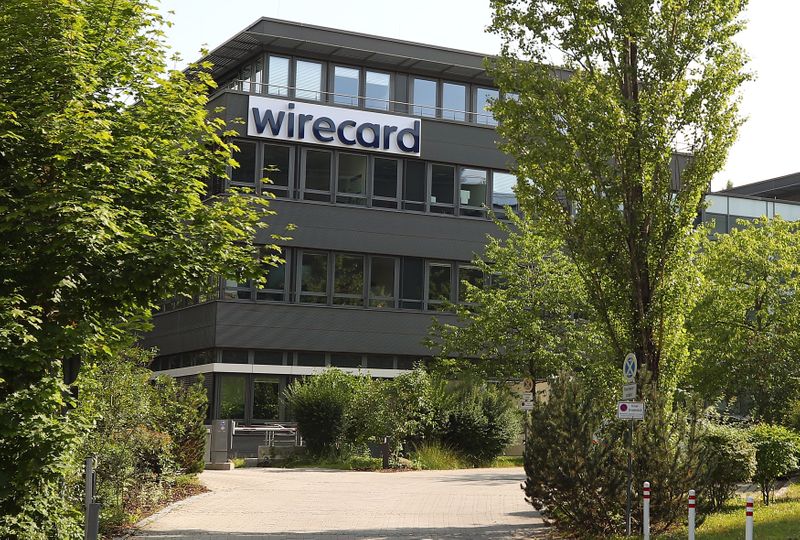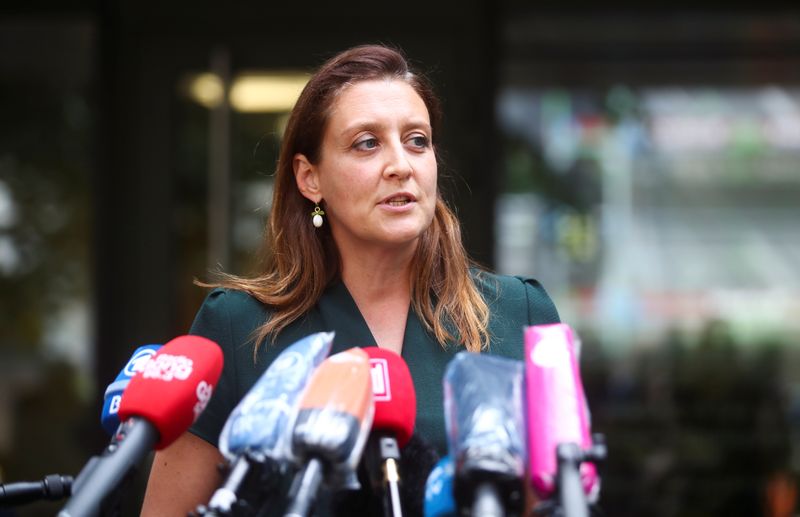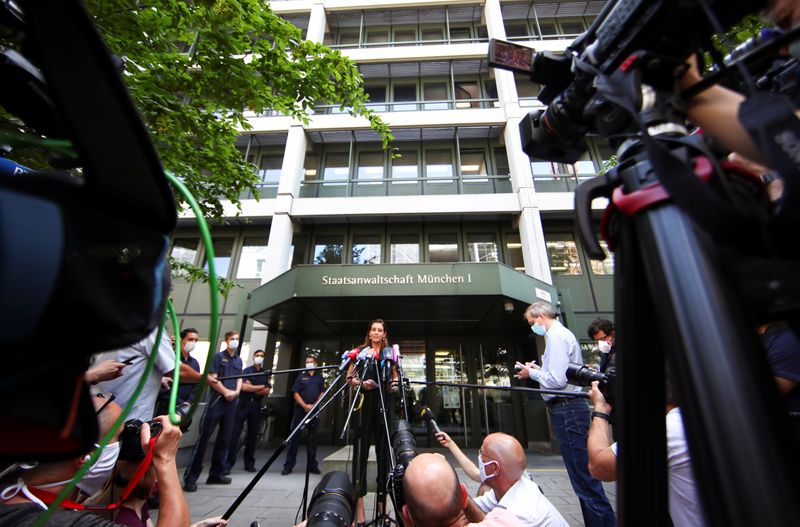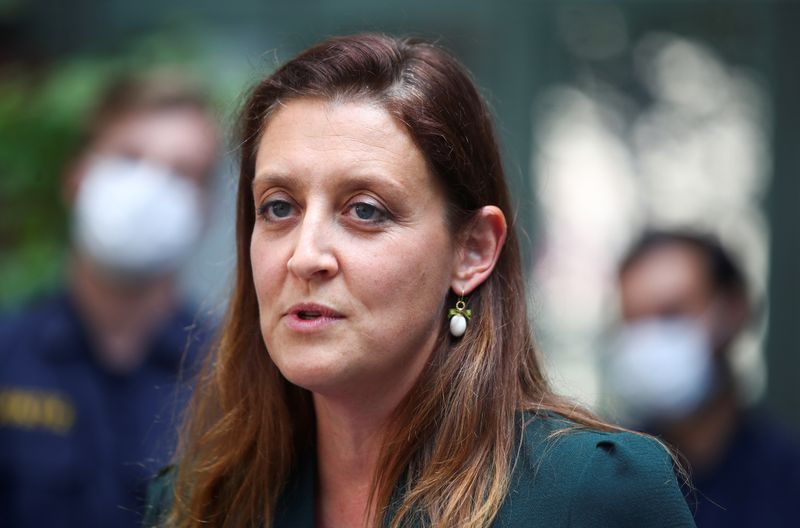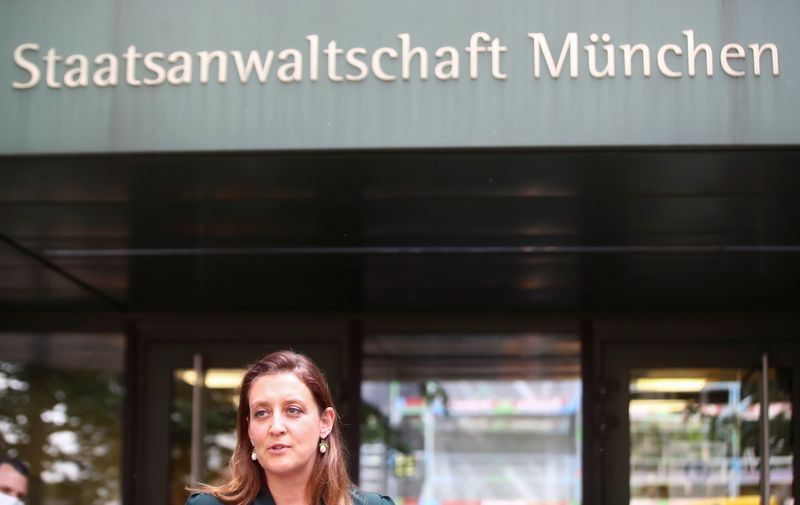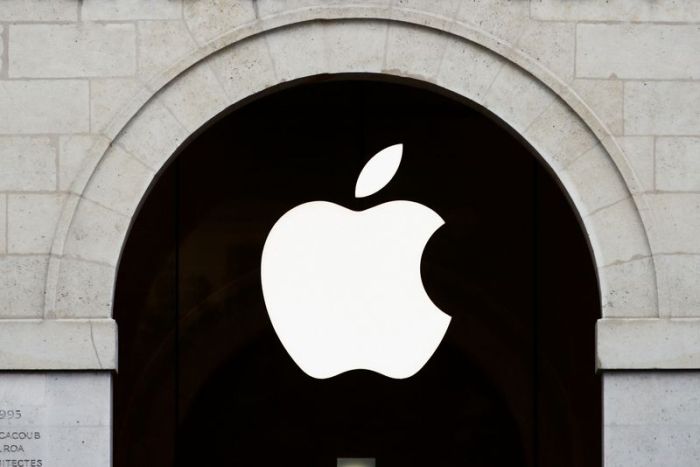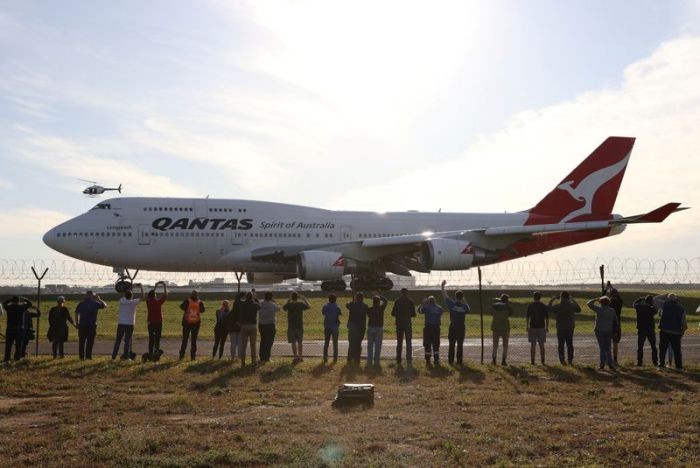MUNICH (Reuters) – German prosecutors arrested three former top executives of Wirecard <WDIG.DE> on Wednesday, saying it suspected them of masterminding a criminal racket to fake the company’s accounts and bilk creditors of billions of euros.
Former Chief Executive Markus Braun, already a suspect, was re-arrested along with Wirecard’s former chief financial officer and chief accounting officer on the strength of testimony from a cooperating witness.
The collapse of the high-flying financial technology company last month exposed a breakdown in oversight. Regulators for years ignored warnings from investigative journalists and market sceptics that Wirecard was inflating revenues and profit.
The political fallout reached Chancellor Angela Merkel on Wednesday as her office said she raised Wirecard’s proposed takeover of a Chinese company during a visit last September. Merkel was completely unaware of any serious irregularities at Wirecard at the time, her office said.
The three former executives are suspected of having conspired with others to inflate revenues and its balance sheet by faking business with third-party partners, said Anne Leiding, spokeswoman for the Munich State Prosecutor’s Office.
This created a false impression of financial strength that enabled Wirecard subsequently to borrow 3.2 billion euros ($3.7 billion) from banks and investors.
“In reality it was clear, at the latest by the end of 2015, that Wirecard’s real business was losing money,” Leiding told reporters in Munich.
The executives are also suspected of harming investors by overpaying for acquisitions, she said. Interrogations had revealed the existence of a strict hierarchy at Wirecard “characterised by an esprit de corps and oaths of loyalty” to Braun as their leader.
Braun, who quit after auditor EY said it could not verify 1.9 billion euros supposedly held in escrow on behalf of the third-party partners, was earlier arrested and released on 5 million euros bail. He has denied wrongdoing.
QUESTIONS IN PARLIAMENT
Prosecutors are now investigating Braun and his suspected accomplices – who were not named – for organised commercial criminal fraud, breach of trust, false accounting and market manipulation.
Burkhard Ley was chief financial officer at the time. His lawyer said Ley was cooperating with the investigation and rejected the allegations against him.
A warrant is out for the arrest of Jan Marsalek, Wirecard’s former chief operating officer, reported by investigative website Bellingcat and news magazine Der Spiegel to have fled either to Belarus or Russia.
Wirecard, which was worth $28 billion just two years ago, now has a stock market value of 220 million euros. The 3.2 billion euros it borrowed are now “in all probability lost”, Leiding said.
Parliament’s financial committee will hold an extraordinary hearing next Wednesday to try and find out more about why the German financial and political establishment was so slow to act on reports of financial problems at Wirecard.
The Financial Times published the first of a series of reports alleging accounting fraud at Wirecard in January 2019 yet the German finance ministry has told parliament that it reached out to Beijing in June of that year to inform them about Wirecard’s interest in entering the Chinese market.
A senior aide lobbied for the deal to take over Chinese payments company Allscore after Merkel’s visit, her office said, but she had no further involvement. Wirecard announced the deal in November.
Finance Minister Olaf Scholz, who oversees financial regulator BaFin, and Economy Minister Peter Altmaier have been called to testify at the closed-door hearing.
Opposition lawmakers are pressing for a detailed explanation of why officials failed to act earlier on the reports of suspected accounting issues at Wirecard and what political support the company may have received.
(Additional reporting by Arno Schuetze, Alexander Huebner, David French and Andreas Rinke; Writing by Douglas Busvine; Editing by Maria Sheahan and Pravin Char)

